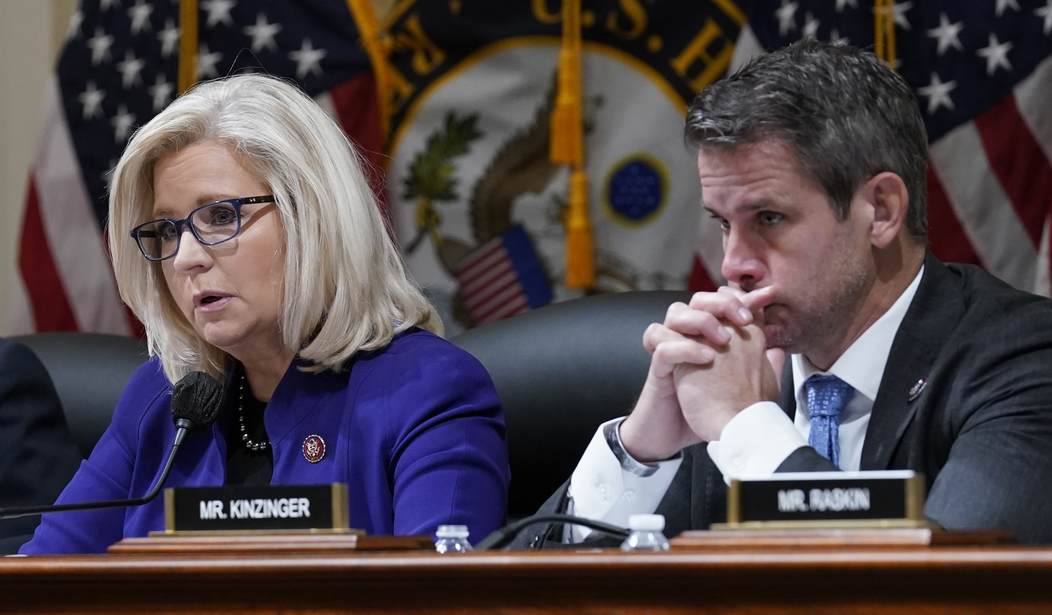The Electoral Count Act of 1887 is in need of reform. The House put up a bill written by the January 6 committee and introduced by Republican Liz Cheney and Democrat Zoe Lofgren for a vote on Wednesday. The Presidential Election Reform Act was written in response to the events that led up to the Capitol Hill riot.
All House Democrats voted in favor of the bill. Only nine Republicans voted with them, though, and a large part of the lack of support from Republicans can be placed on Liz Cheney’s participation in the legislative reform. The majority of Republicans do not trust Cheney who has conducted herself as a woman with a political grudge to grind against Donald Trump. Cheney is the vice-chair of the January 6 committee.
The House and Senate have competing bills. The Senate bill has the necessary support from Senate Republicans to break a filibuster. Yet, the House Democrats chose to introduce the bill from Lofgren and Cheney.
The bills are broadly similar — raising the threshold and narrowing the grounds for objecting to electors, and clarifying the vice president’s ceremonial role in the process — but have some substantive differences.
The House bill is more aggressive than the Senate bill in some areas, such as requiring a third of House members to sign onto an objection, rather than one-fifth.
House Republicans are largely united in their disapproval of the January 6 committee. Rep. Jim Banks (R-IN) summed up the general opinion of Republicans. Anything with Liz Cheney’s fingerprints on it is not to be taken seriously. Banks is the chair of the Republican Study Committee and spoke to Axios about this back in January. He, like others, support ECA reform in principle but they don’t want Cheney involved.
“It’s clear that anything Liz Cheney touches is all about whacking Donald Trump and not about making meaningful changes,” he told Axios in a brief interview at the Capitol on Tuesday.
Banks said he would take the Senate bill “a lot more seriously” but that Cheney’s role “greatly diminishes the seriousness” of the House bill.
Other House Republicans said similar things as they also spoke up about various procedural and policy-focused objections to the bill.
“I think it gives bias to the language of the bill,” said Rep. Andy Biggs (R-Ariz.).
“For me, it matters because you have two people who have been actively engaged in that committee dropping the [bill] like this … when there was the alternative to have the companion vote from the Senate,” said Rep. Kelly Armstrong (R-N.D.). “They never miss an opportunity to miss an opportunity.”
“If it comes out of a rotten process, you probably ought to begin with a healthy level of skepticism,” said Rep. Dan Bishop (R-N.C.).
Rep. Rodney Davis (R-Ill.) told a reporter that referring to the bill as bipartisan because Cheney supports it is “like me saying a bill is bipartisan because [Republican Rep.] Jeff Van Drew, who used to be a Democrat, is on it.”
That was in January. Fast forward to Wednesday. From January to Wednesday, Cheney and Lofgren only gained 9 Republican votes, and that includes Cheney’s vote. None of the Republicans are on the ballot in November. The bill passed 229-203. The other Republicans who voted for it were Adam Kinzinger (IL), Tom Rice (S.C.), Jaime Herrera Beutler (WA), Peter Meijer (MI), Fred Upton (MI), John Katko (NY), Anthony Gonzalez (OH), and Chris Jacobs (NY). Two Republicans who voted for Trump’s impeachment, Dan Newhouse (WA) and David Valadao (CA) voted against the bill. They both won their primaries.
The Senate bill, which has enough Republican support to break a filibuster, if necessary, has some slight differences from the House bill. For example, the Senate bill requires a fifth of House members to sign onto an objection while the House version requires a third of the members. Democrat leaders in the House could have used an analogue to the Senate bill that the co-chairs of the bipartisan Problem Solvers Caucus introduced in the House last week but they chose to go forward with the Cheney-Lofgren bill Wednesday.
The House bill narrows the grounds for filing an objection to certifying a state’s presidential electors. The higher threshold replaces the current requirement of just one House member and one senator. And, an important stipulation is the clarification that the role of the vice president in the process is purely ceremonial.
Lofgren has already been in contact with senators on how to reconcile the two bills.








Join the conversation as a VIP Member